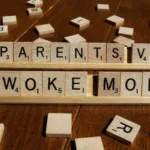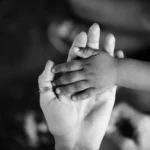
Published August 1, 2023
Interview by Father Patrick Briscoe with Carrie Gress
The summer blockbuster “Barbie” has earned more than $774 million at the box office. The film has everyone talking about feminism. With commentators as diverse as Piers Morgan, Ben Shapiro and Krystal Ball devoting significant time to exploring the film’s ideas, it’s obvious to anyone that we need to be having a real conversation about feminism.
In her provocative new book, “The End of Woman,” expert author Carrie Gress challenges the impact of feminism, an ideology that originally aimed to “smash the patriarchy” but appears to have made male lives the norm for everyone, blurring the definition of “woman” after 50 years of radical feminism.
Despite the many troubling realities of our day — such as trans athletes dominating women’s sports or abortion’s continued expansion — many feminists remain steadfast in their belief in liberation. However, Gress offers real solutions for women — answers that address their unique experiences and needs.
As a wife, mother and philosopher, Gress delves into the history of feminism, revealing a legacy of abuse, abandonment and anarchy. According to Gress, the path to a better society lies in rediscovering authentic womanhood and motherhood.
Gress recently took the time to sit down with Our Sunday Visitor, sharing her earth-shattering approach.
This interview has been edited for length and clarity.
Feminism from the beginning
Our Sunday Visitor: Your writing spans a variety of interests. How did this book come about? Where did we get to a point where we’re talking about the “end of woman”?
Carrie Gress: When I wrote the book, “The Anti-Mary Exposed: Rescuing the Culture from Toxic Femininity,” I had a lot of people say, “can you write a book like this that would appeal to a Protestant audience or a secular audience?” So that’s initially what I thought I was doing. Obviously I didn’t want to write the same book, but that was kind of what drove me to do that.
Also, I had never looked back at early feminism. I was really anxious to see what was there that I did not know about. When I dove into the project, I discovered how many people have no idea what the beginning of the movement was. I often hear that feminism was hijacked in the ’60s and whatnot. But when I started seeing what was really there, it became very clear that it wasn’t hijacked; it became more aggressive in the ’60s. But all of the key ideas that we see in feminism, most of them started much, much earlier; in fact, they’re there from the beginning.
Our Sunday Visitor: Can you give me an example? What are, what are some of the key ideas that you discovered that make major philosophical claims that might be misunderstood or problematic?
Gress: Well, first and most obvious we have to start with Mary Wollstonecraft’s idea of restructuring society away from anything masculine. Wollstonecraft wanted to get rid of any kind of hierarchy. She speaks about it in her most famous book, saying how she just thought it might have been good for those at the top, but it was really bad for everybody else. For her, hierarchy was masculine.
You didn’t have women in the military. You didn’t have women in the hierarchy of the Church. Those are the two things she’s targeting. In 1792 — that’s roughly when she’s writing this — we see the idea for smashing the patriarchy is connected to hierarchy. Hierarchy is the masculine way in which civilization is organized, so that becomes smashing the patriarchy.
Another idea is really the problem of seeing that the way men live and prioritizing the masculine becomes how they were trying to answer the question of helping women. They see women dying in childbirth, women who are overburdened with too many children and they think, “well, men don’t have these challenges.” The conclusion is: “Why don’t we just make them more like men?”
Twin mistakes
Our Sunday Visitor: What are some of the consequences of these twin mistakes?
Gress: If people idealize the masculine, then they try to make the feminine masculine, even on the biological level. Biologically trying to make women more like men opens up a whole door where suddenly fertility is separate from sexuality. And sex becomes just a matter of pleasure. Male and female doesn’t matter anymore if you’re not trying to have children.
I think it’s important to note that Charlie Rice, a well-known law professor at Notre Dame, used to tell his students back in the ’70s and ’80s that contraception would lead to gay marriage. His students laughed, saying there’s no way that would ever happen. But obviously, because of contraception, perceptions have fundamentally changed.
But women are meant to be mothers. And I don’t mean just biologically, but also spiritually and psychologically. So women are caught in this weird, schizophrenic thing where we want to be just like men and beat men. But we also don’t want to be men.
What is a woman?
Our Sunday Visitor: Moving from a diagnosis of the current dysfunction, toward a positive vision: What are some of the keys that you’re suggesting are to be found in the rediscovery of true womanhood? Or, as some are asking: What is a woman?
Gress: My book on the spiritual art of motherhood is actually an effort to try and help women figure out what it means to be a woman. And how do you live as a woman? And how do you have mental hooks to think about womanhood? Because we’ve erased all of them.
The answer is very simple. In a funny sense, we are seeing the answer with the pet craze. Women are dying to be mothers, even mothers of plants. That’s a thing now, being a plant parent. You can see this just oozing out of us, a desire to mother something. I think that in a certain respect shows us that. We haven’t turned off these desires of a woman’s heart. We’ve squashed them in a certain way because we’ve told women to kill their children, so they end up having dogs or cats or whatever. I think it shows us that that desire is still deep in the heart of women, that that hasn’t been extinguished. We must get back to this idea of not being afraid to say that women are meant to be mothers. Not everybody’s going to be a biological mother. And I think that religious sisters offer us such a great example of this that they’re not meant to be biological mothers, but they mother the community and the people that they’re praying for in really beautiful ways. I am very close to one group of religious women and it’s amazing what they do.
How to talk about womanhood
Our Sunday Visitor: What is a supportive, authentic, faithful way to talk about womanhood?
Gress: We have bought so deeply into a masculine ideal. The other piece is we have to stop blaming men for everything. I think part of the appeal of my books is that I don’t bash men; I have a great deal of sympathy for them. I think they’ve been blamed for so much in the last 50 years. Does that mean I think they’re perfect? No, I think there are issues in our culture’s ideas of masculinity, but they’re not being solved by pointing the finger all the time.
I think the Church has an amazing capacity to convey this because fundamentally, feminism is an ideology. In fact, there’s a whole section of my book about the connection with communism. Betty Friedan had very clear communist connections. We see this really impressive overlay of what happened in the ’40s, ’50s and ’60s, between communism and feminism because their goals were so similar.
The Church can help us to get away from pathos and return to logos, to the word “Truth.” We have gotten away from what’s objectively true and moved toward emotional subjectivity and victimhood. This is actually how men have been completely neutralized in this whole debate. I mean, men never want to weigh in on this. And I don’t blame them.
Feminist elites have done an amazing job of ignoring or belittling anybody who threatens their agenda or their narrative. These are things we have to recognize and have courage to speak out about. They are incrementally taking up more and more intellectual real estate through the LGBT movement (and you know all of the movement’s elements come from feminism). There’s never been a more pro-woman organization in the history of the world than the Church.
Brainwashed
Our Sunday Visitor: Is there anything else that you want readers to know about the book?
Gress: The book is fascinating. I was shocked over and over again. Why have we not heard this? Why don’t we know this? If we had any idea how distorted this has been and how truly brainwashed we have been by this movement — because there’s not evidence that it’s helped women, we don’t see it in any of the metrics in terms of depression, suicide numbers, STD’s, divorce — that would be a game changer.
There’s no trajectory of women getting happier. The more feminism we have, the opposite is happening and those are details that they’re not going to tell you. We have to be proactive and dig these things up ourselves and inform ourselves about the reality behind instead of waiting for one of them to.
Carrie Gress, Ph.D., is a Fellow at the Ethics and Public Policy Center, where she co-directs EPPC’s Theology of Home Project. She earned her doctorate in philosophy from the Catholic University of America and is the co-editor at the online women’s magazine Theology of Home.
Father Patrick Briscoe, O.P., is a Dominican friar and the editor of Our Sunday Visitor. Along with his Dominican brothers, he is host of the podcast Godsplaining and a co-author of “Saint Dominic’s Way of Life: A Path to Knowing and Loving God.” He is also the author of the OSV seasonal devotional, “My Daily Visitor.”
Carrie Gress, Ph.D., is a Fellow at the Ethics and Public Policy Center, where she co-directs EPPC’s Theology of Home Project. She earned her doctorate in philosophy from the Catholic University of America and is the co-editor at the online women’s magazine Theology of Home.












